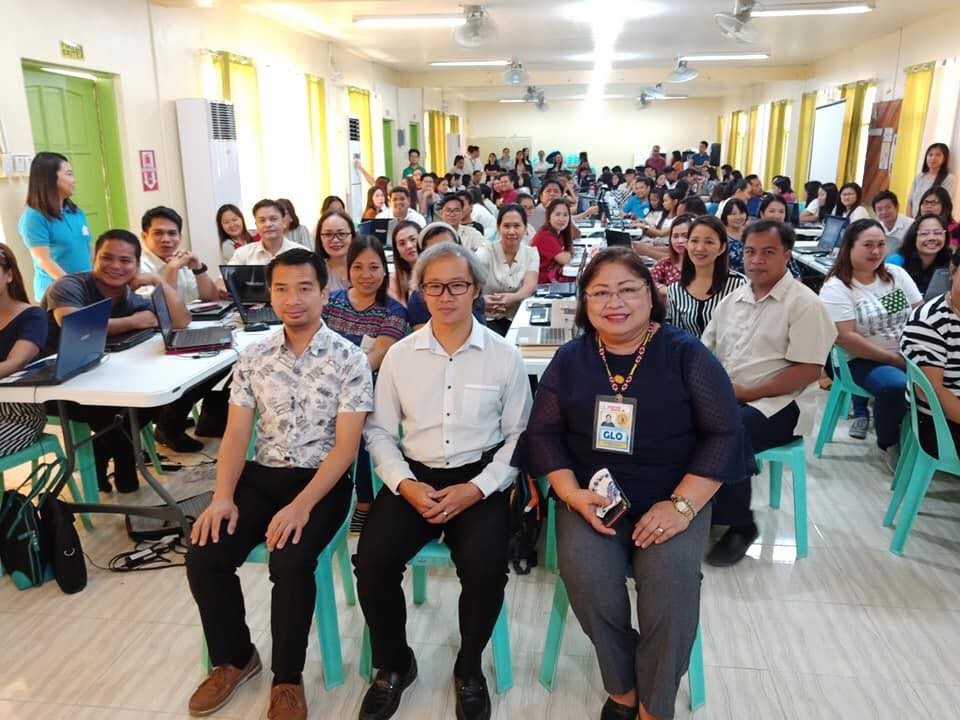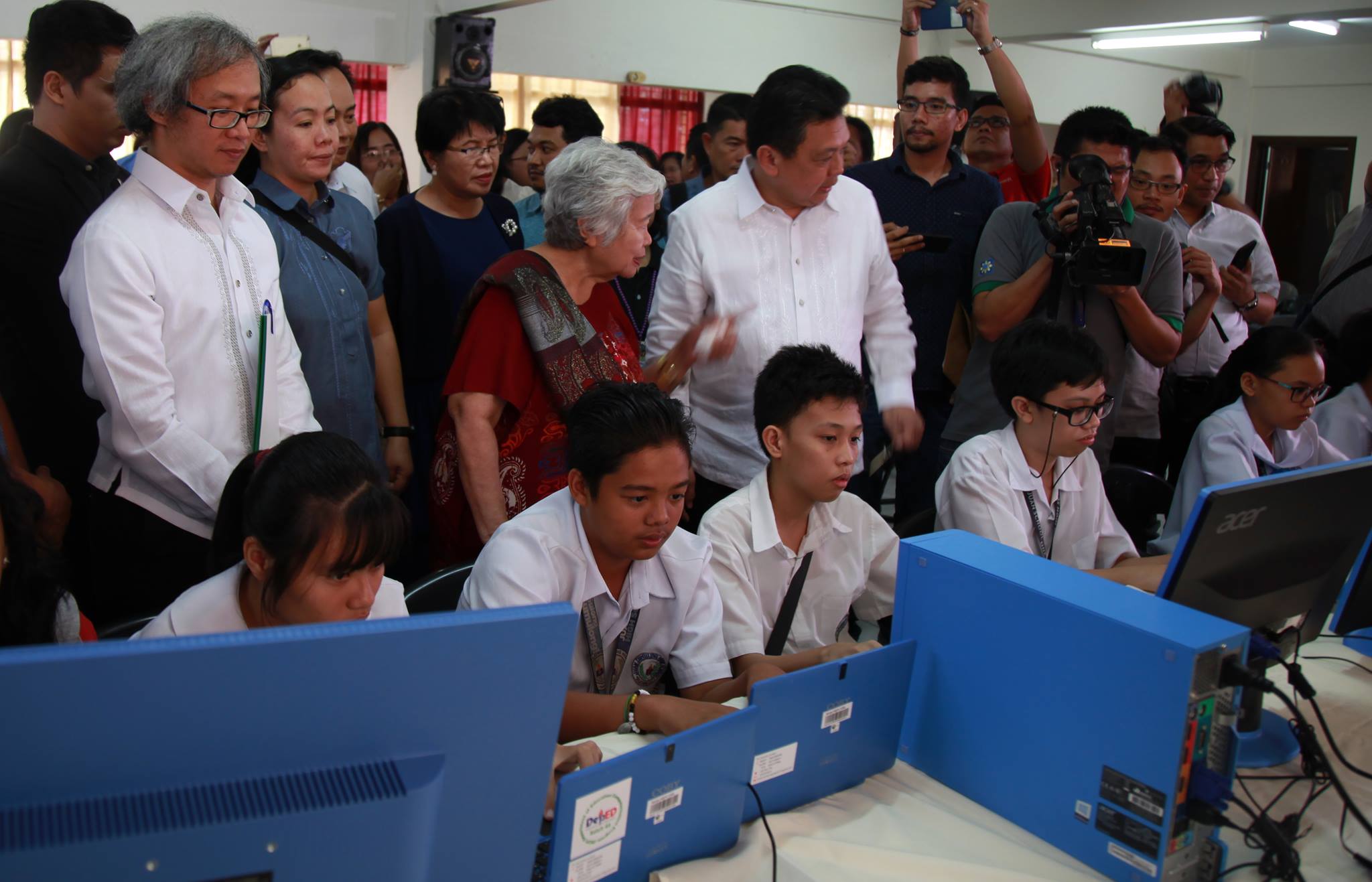
In its constant pursuit of helping citizens get a more and relatable understanding of various tech-related polices, initiatives and services, OpenGov endeavours to speak directly with those responsible.
The 21St century saw the Philippines, and the world, being influenced by a plethora of information and communication technologies (ICTs).
The ways people plan, develop, implement, and communicate ideas and knowledge had been transformed as computers, the internet, social media, and smart mobile devices have become increasingly pervasive.
To add to the mix, science and understanding of cutting-edge concepts, like quantum computing, is taking place at a faster pace than ever before – making even recent tech redundant and keeping the digital landscape extremely dynamic.
To adapt to these changes, Filipinos need to develop a whole new range of ICT-related skills to be effective citizens in an increasingly digital world.
To learn more about how the nation is addressing these sensitive and complex aspects of its digital journey, OpenGov Asia had the privilege of speaking with Mr. Abram Abanil, Director IV for Information and Communications Technology Service, Department of Education.

As the Director of the ICT Service, he handles the development of the systems, and the infrastructure needed to implement them, for all the basic education schools in the country.
The daunting task of guiding the ICT journey of the Philippine education system falls on his shoulders.
But by taking things one step at a time and working with the basics, he is confident that the Philippines will successfully navigate these digital waters.
The first step of this journey, he believes, is Digital Literacy; more specifically he is convinced that tech and digital knowledge must be included as early as possible in the education curriculum.
Mr. Abanil feels that empowering students with ICT skills is what will make them future ready and redundant proof.
Most, if not all, jobs will have an ICT component. Additionally, high-paying careers are predominantly ICT-related.
“We need to prepare the students so they could adjust with the continuous developments in technology.”– Abram Abanil
Background
The over-arching vision is to deliver Digital Literacy, which is already part of the country’s education curriculum.
But a nuanced understanding of the ICT initiatives of the Department of Education (DepEd) will require knowledge of its mandate and core objectives.
The decision to incorporate a comprehensive and strategic digital literacy plan in the Philippine education coincided with the revision of the K-12 curriculum, which happened around 2013 or 2014.
Distribution of ICT equipment, however, had been ongoing prior to that. The problem was that the ICT devices were being delivered without knowing why it was being done. The agency was blindly doing a task, not knowing, much less understanding, the purpose of the equipment.
Now, the agency realises how important their role is and its criticality to the success of the nation. And with this understanding comes an intentionality and zeal in the implementation.
There are very clear and detailed milestones and benchmarks for the skills and knowledge taught to students by grade level. In fact, the new curriculum requires Digital Literacy to be taught to students as early as Grade 4.
- Grade 4 – 6: Productivity tools
Most children by this grade are comfortable using smart phones, tablets and similar equipment for games and entertainment. So, at this stage, children are introduced to ICT background and the more common packages. Tablet PCs are introduced to augment the teachers’ lessons, particularly in delivering hands-on exercises on the use of Microsoft Office.
- Grade 7: Basic Programming skills
Students are introduced to various fundamental concepts and tools in programming. The Director said that things are still being ironed out for this stage as they still need to determine and define what programming language needs to be focused on.
- Grade 8 – 10: Multimedia skills
In order to expand students’ ICT toolkit, multimedia is introduced in these grades. Children at this age can be considered digital natives, especially with social media – Facebook, Instagram, YouTube, etc. but will often lack depth of technical knowledge. Currently, the agency is working on procuring licensed Adobe packages in bulk, which they are planning to install in laptops that are to be provided to students.
- Grade 11 – 12: Vocational skills in ICT
The curriculum and syllabus at this point in the education system is far more technical and needs to be more specific for students, making it a complex issue still being fleshed out for fixing.
On completion of their grade 12, according to Mr. Abanil, the students would be awarded with certifications. He added that they are working with the Technical Education and Skills Development Authority (TESDA) for the vocational tracks’ standards.
In the course of the conversation, it was evident that the Director had two very strategic initiatives to achieve the goal of Digital Literacy: ICT Assisted Teaching and ICT Assisted Learning.
The Initiatives – ICT Assisted Teaching

The Department of Education is deploying its computerisation program, wherein they are equipping schools with the technology needed to support their initiatives.
They are now moving towards tablet PCs and laptops. These devices will be pre-loaded and will have pre-installed e-learning resources and e-learning tools.
The goal for this year is to provide tablet PCs and laptops for senior high school students; elementary and secondary students have been targeted for the next year.
The distribution of tablet PCs and laptops addresses one component of their job, which according to the Mr. Abanil, is to ensure that teachers have the right (and best) tools that will equip them in delivering digital literacy skills.
This is the core of the ICT Assisted Teaching initiative: equipping teachers to deliver what is needed.
The pre-installed e-learning resources and e-learning tools are open educational resources (OER) that they can use for classroom teaching.
Currently, they have 300GB worth of materials that have been mapped to the lesson plans. The teachers can choose which resource they feel is most apt for their class.
This initiative will remove the focus from paper-based visual aids, on which teachers spend a lot of time, so that they can channel their energies to facilitating more personal interactions with the students instead.
Also included in this initiative is capacity-building for teachers. Teachers are taught to develop their own localised e-learning materials and to avoid relying solely on pre-created ones.
These localised e-learning materials will be checked by the Department as a quality-assurance mechanism.
Ideally, these e-materials created by teachers will be disseminated nationally, allowing other teachers to benefit from each other in a peer-to-peer mechanism.
The Initiatives – ICT Assisted Learning

In essence, the ICT Assisted Learning initiative is a natural extension of the ICT Assisted Teaching initiative.
The difference being that the initiatives are developed from the viewpoint of students – what and how they can benefit from them.
The goal is to have a system in place that will standardise all assessments that students undergo – diagnostic, formative, and / or summative.
Students would immediately have access to results of these assessments. Feedback on their strengths and areas of improvement would be reported.
Based on this, a list of e-learning tools and resources to improve, augment and enhance understanding of the lessons would be released.
Collaborations
Mr. Abanil said as they are addressing all this under the banner of basic education, they are primarily working independently on this initiative.
They are, however, collaborating with the software vendors and providers of the learning resources, particularly in the productivity tools and multimedia skills.
One of the challenges they are encountering is in the procurement process. The difficulty lies in synchronising schedules and obtaining approvals.
Mr. Abanil says they are doing their best to mitigate this and have already acquired several licences for both the teachers and the students.
Moreover, he shared that they have an existing collaboration with the Department of Information and Communications Technology (DICT) in the provision of connectivity for the schools, which will definitely boost their initiatives.
Measures of Success
Mr. Abanil reiterated once more that the objective of all of these is to deliver Digital Literacy.
This being said, he explained, that they will know that their efforts are successful if students can absorb the lessons.
There is a national achievement test that incorporates a section on Digital Literacy.
If the teachers are able to explain the lessons well and students pay attention to their classes, then it will definitely show.
The scores would reflect the level that the school has reached. In the end, the aim is to achieve an improvement in the quality of education being given and being received.
From a stage wherein schools initially have no visible ICT component, the Department of Education is hoping that the schools will be qualified and equipped to provide ICT trainings to others as well.
The significance of Digital Literacy is that it will contribute in maximising the opportunities and potential of ICT and other digital technologies as tools for personal and professional development.
The ultimate aim is equipping all Filipinos for a digital future and improving their quality of life.
















